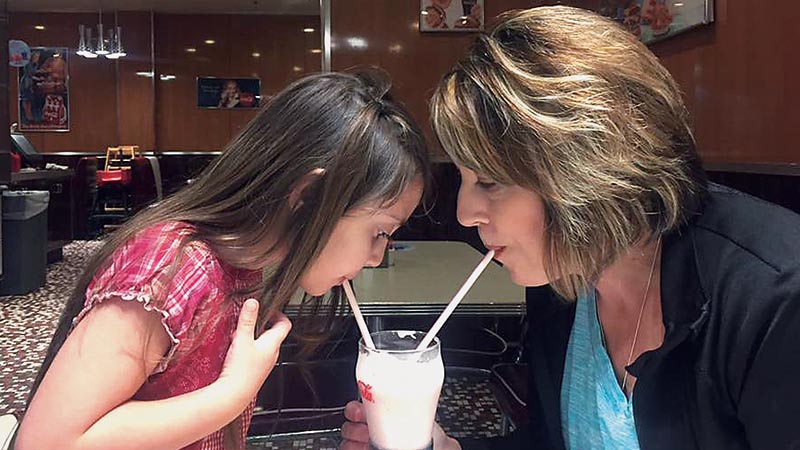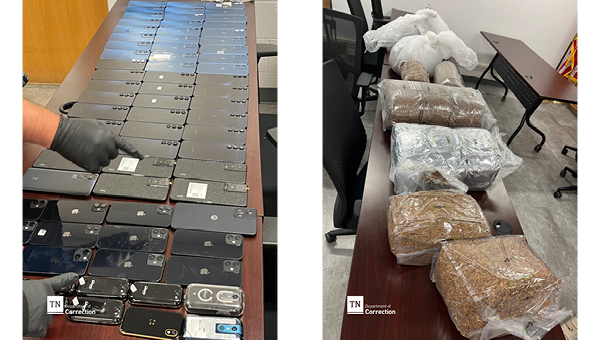Local woman shares NAS experience in wake of lawsuit against prescription company
Published 6:52 pm Wednesday, June 14, 2017

- Contributed Photo Angie Odom, at right, knows first hand about Neonatal Abstinence Syndrome (NAS). Her adopted daughter Isabella Hope, at left, was born detoxing from drugs.
In the wake of a lawsuit filed by the Attorneys General of the region against the manufacturers of opioid medication, a local mother said she is pleased to see awareness being raised regarding Neonatal Abstinence Syndrome (NAS).
One of the plaintiffs listed in the lawsuit is “Baby Doe,” a child born suffering from NAS due to prescription opioid drug use and abuse by the baby’s birth mother.
NAS is the name for the condition suffered by infants when they are born detoxing from drugs — and it can be illegal substances or prescription medications.
It was not that long ago that many people did not know what NAS was, or that the condition even had a name, but those three letters have made a huge impact in the life of Angie Odom and her husband, Earl.
In 2013, the Odoms became the caregivers for an infant girl after the Department of Children’s Services removed the child from her grandmother’s custody. The Odoms later adopted the girl, and her name became Isabella Hope Odom, though the family calls her “Bella” for short.
When Bella’s birth mother was only eight weeks pregnant, she overdosed on drugs. According to medical records, she had a “poly-substance overdose,” which means there were multiple drugs in her system. The overdose left her with permanent brain damage and now is classified as being in a vegetative state. The baby survived the overdose and continued to grow in the womb, but now she was exposed to a variety of medications used in her mother’s treatment in the hospital. When Bella was born, she began detoxing from the prescription drugs doctors had used to treat her mother.
Bella was born in January 2013. By March 2013, DCS had removed her from the custody of her birth mother’s mom due to drug issues in that home and granted emergency custody to the Odoms. In March 2014 the Odom’s adoption of Bella was finalized.
Angie Odom founded a crisis pregnancy Center in Elizabethton in 2000, but even with her years of experience as a mother herself and helping other moms in need, she said nothing had prepared her for the ravages of NAS on an infant. Children suffering from NAS display a variety of visible symptoms including inconsolable crying, muscle spasms or jerks, lack of appetite, and other more trackable medical issues such as low birth weight and respiratory issues. Many babies born suffering from NAS must spend time in a hospital Neonatal Intensive Care Unit (NICU).
When the Odom’s first took custody of Bella, Angie noted that she would frequently cry or scream and nothing seemed to comfort her. Her arms and legs would jerk and spasm. Odom said she often felt helpless because she knew the baby was hurting but she didn’t know what to do to help her.
“I had a screaming kid, and I didn’t know what to look for, even with all my resources,” Odom said.
Finally, after many doctors appointments and obtaining the birth mother’s medical records, the Odoms began to learn about NAS and its effects on children. Since that time, Bella has also been diagnosed with cerebral palsy and neuropathy. Both of those conditions can be medically linked to her exposure to prescription medications while in the womb, Odom said.
Since learning about her adopted daughter’s condition, Odom has shared her story with anyone she can, including publishing a book about it, in hopes of raising awareness about NAS.
“I’m just happy that someone else is raising awareness about this issue,” Odom said of the lawsuit.
However, more needs to be done than just talking about the problem, she said.
“Most of these babies still go home with their birth moms,” Odom said. “These moms are already facing their own battle and struggles with their drug use. They have difficulty focusing on their own needs due to these issues so how can they focus on what their child needs?”
Since the condition is a relatively new diagnosis, Odom said there is no long-term data or studies that show what issues these children may face once they reach school age or later in life. There are also no programs that she is aware of that provide assistance to someone caring for a child suffering from NAS — whether it’s the birth parents, other relatives, foster care, or adoptive families.
Odom said she would like to see programs that would help those raising children born suffering from addiction know how to care for the child and how to obtain proper medical treatment and therapies for any issues the child may have.
“I think we really have to understand that when a child is born addicted, they are just like any other person with an addiction and they will always have that predisposition to addiction,” Odom said. “They were born as an addicted person, so we have to be careful what we give them because we don’t want to reopen those addictive pathways.”
This is something Odom has struggled with when making decisions regarding Bella’s treatments for Cerebral Palsy and particularly her neuropathy issues in her arms and legs.
“I have to pick and choose what we give her to treat her condition because we have to stay away from addictive drugs,” Odom said. “There may be something that is a more effective treatment that what she is taking but we have to consider what those increased risks would be to expose her to it.”
As for the lawsuit, Odom said she would be watching to see how it plays out and she will continue sharing her story with others to raise awareness for NAS.





